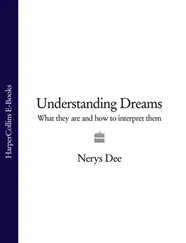Thomas Swann - How are the Mighty fallen
Здесь есть возможность читать онлайн «Thomas Swann - How are the Mighty fallen» весь текст электронной книги совершенно бесплатно (целиком полную версию без сокращений). В некоторых случаях можно слушать аудио, скачать через торрент в формате fb2 и присутствует краткое содержание. Жанр: Фэнтези, на английском языке. Описание произведения, (предисловие) а так же отзывы посетителей доступны на портале библиотеки ЛибКат.
- Название:How are the Mighty fallen
- Автор:
- Жанр:
- Год:неизвестен
- ISBN:нет данных
- Рейтинг книги:4 / 5. Голосов: 1
-
Избранное:Добавить в избранное
- Отзывы:
-
Ваша оценка:
- 80
- 1
- 2
- 3
- 4
- 5
How are the Mighty fallen: краткое содержание, описание и аннотация
Предлагаем к чтению аннотацию, описание, краткое содержание или предисловие (зависит от того, что написал сам автор книги «How are the Mighty fallen»). Если вы не нашли необходимую информацию о книге — напишите в комментариях, мы постараемся отыскать её.
How are the Mighty fallen — читать онлайн бесплатно полную книгу (весь текст) целиком
Ниже представлен текст книги, разбитый по страницам. Система сохранения места последней прочитанной страницы, позволяет с удобством читать онлайн бесплатно книгу «How are the Mighty fallen», без необходимости каждый раз заново искать на чём Вы остановились. Поставьте закладку, и сможете в любой момент перейти на страницу, на которой закончили чтение.
Интервал:
Закладка:
“And Naomi and I will lay a feast for my son.”
“Rizpah’s women will wait upon you.”
“I will look to him myself. I have brought delicacies for him-leeks and onions, figs and manna cakes-and I would give him a quiet place to feast and to rest.”
“Ah, my lady, he will feast indeed. None of us has eaten since sunrise. But the ban will be lifted with lamplighting time.”
“First, I will see my husband. Has he retired to his tent?”
“With his new armorbearer, David. The boy is playing one of those old melodies from our wilderness wanderings.”
If not Rizpah, then, it was David who comforted her husband, the young shepherd who could coax a lyre into music as sweet as the fabled glass chimes of Ophir. Even now she could hear the plangent melody issuing from Saul’s tent. No matter. The music eased his spirit and she was pleased for him. Jealousy fell from her like an outworn cloak. Momentarily she remembered the old lost magic (so many magics, so long ago; but Saul was the last-except for Jonathan, who could never be lost to her).
“Send a man to announce my arrival, will you Anub?”
Saul received her with embarrassment but also with undeniable pleasure. She saw herself reflected in his eyes as that golden, lyre-tongued Lilith who had shared the Garden of Eden with Adam and Eve, and she smiled an inward, ironic smile because it was Eve, the wife and mother, she wished to be to him and not Lilith, the temptress. How old and worn he looked! Valor had gone from him with his armor; kingliness had departed with his crown, which lay on the floor like a child’s discarded toy. She could have eased his spirit with songs of the sea, even as David sang about shepherds and pastures. Her hands could magic the wrinkles from his brow. But he had discarded her from his bed and his confidence, and she had entered the tent only to wait for Jonathan.
Rizpah, the concubine, sat beside him on a lionskin rug where loaves of bread, wineskins, bunches of grapes awaited the lifting of the ban. A clothes chest, carved from the cedars of Lebanon, sat against the wall beside a couch with feet like the hooves of a deer. There were no chairs. There was, in fact, little to indicate that the tent housed a king instead of a roving Bedouin chieftain. Even Saul’s robe was unembellished, and its sleeves were faded and frayed. In the days of their love, she had sat at her loom for endless happy hours to weave him robes of Tyrian purple; to spin him cloaks as gossamer as the filaments of a silkworm’s cocoon. Once… once… But what was regret except the foolish indulgence of one without hope? And Ahinoam hoped for Jonathan: good things… many things… neither thrones nor powers but freedom from melancholy and a love which was stronger than death.
The king rose unsteadily to greet her. He was not intoxicated, he was exhausted. David moved to support him, a boy with the face of an angel and the body of that particular angel who had wrestled Jacob. He stared at Ahinoam with a fixedness which would have been rudeness had it not been so utterly reverent. Ahinoam had met him recently in Gibeah and heard him sing and play. She admired both his voice and his psalms and she thought him the comeliest lad after Jonathan in all of Israel.
The two were opposites in other ways: David, small and sinewy, a lion cub not quite grown; Jonathan, tall and slender as a papyrus stalk. She thought of one in terms of an animal the other a plant. One was created to fight, to wound, to defend; the other to fructify the mothering earth. When the cub had grown into a lion, he would be ruthless toward his enemies, of that she had no doubt Would he always sheathe his claws among his friends? He had obviously charmed Saul; her daughter Michal had talked about him incessantly for a week. He and Jonathan had yet to meet, but if Jonathan loved him, then he was meant to be loved. For Jonathan, who was greatly forgiving, was also greatly perceptive of faults in those he met and in himself, the one person he had not learned to forgive.
Rizpah rose, smiled, and bowed. She was a dark-skinned Ammonite, her eyelids blackened with kohl, her arms ajingle with crude golden bracelets in the shape of serpents, too many of them, and too noisily jingling, her hair a flamboyant red from the dye of the henna plant. Neither beautiful nor, it seemed, intelligent, she possessed an ability which Ahinoam lacked: that of pleasing the king without appearing either subservient or assertive. Her entrance into a tent was a materialization instead of an intrusion. She was no more intrusive, in fact, than a three-legged stool, and far more comfortable. Ahinoam liked her for loving Saul.
Saul embraced Ahinoam with sadly feeble arms. She felt him wince when she touched a recent wound. (Had I anointed him with myrrh and balsam, the wound would have started to heal.) His pointed black beard, sprinkled with gray, was sharp but not unpleasant against her cheek. With a bow to his king and a smile to Ahinoam, David left the tent His going seemed to quench a lamp. Still, she respected his sensitivity, so rare in one so young-seventeen, was it? — in leaving her to speak with her husband and soon, no doubt, her son. If only Rizpah had followed him! But the dark Ammonite returned to the mat of lionskin, her hair a garish tumult about her shoulders, and gazed at Saul with lovelorn eyes.
Ahinoam ignored the platitudes which Israelite women, queens no less than commoners, were expected to shower like manna upon their men.
“Where is my son?” she asked.
“Well and safe. As you know he is always the last to leave the field of battle. He lingers to study the countryside and the enemies’ mistakes.”
“And to find and tend the wounded, who are sometimes forgotten by the victors,” she reminded him.
If David’s going had seemed to quench a lamp, Jonathan’s coming lit a candelabrum. Though doubtless wearier than any other man in camp, he laughed like a little boy at the sight of his mother and ran into her arms.
Jonathan was a princely paradox. He fought like an ibex, swift and agile, and compensated in skill for what he lacked in strength, for he was slim and supple rather than heavily built like his brothers and father. But he fought for Israel and to please his father, not for the pleasure of battle, and he was happiest in Gibeah, where he planted trees and read scrolls and played the lyre and enjoyed his brothers and sisters almost as if they were his own children, and worshipped his mother.
He was not attired for a royal court, even a court in a tent. There was sweat on his cheeks, dust on his garments, a scent of leather about him, and yet Ahinoam enfolded a wonder more rare to her than the gold and ivories of Ophir and held him in a long embrace. He was twenty and the idol of every virgin and most of the wives in Israel, but it was often said of him that he fled an amorous virgin faster than he pursued a Philistine.
He turned to greet the king and, forgetting the usual courtesies, forgetting even to acknowledge Rizpah, started to talk with tremendous animation.
“Father, I met your armorbearer, David, outside the tent. We only spoke a few words but he will make a great warrior, I think. He’s still a boy, but he could have held his own at Michmash. And before the battle, I heard him singing. The men say he softened Yahweh’s heart with his psalms and brought us victory.” Then, apparently realizing that praises of David were not likely to concern a worried mother or a weary father, he said to Ahinoam:
“You have ridden in the sun, Mama. Your face is burned. You must put some balsam on it tonight. Still, the ruddiness becomes you.”
“And your hair is so dusty that I could mistake you for a Hittite,” she teased. “When you left Gibeah it was yellow as a gosling.” Ashtoreth be praised, she thought. For once he has evaded his demon.
Читать дальшеИнтервал:
Закладка:
Похожие книги на «How are the Mighty fallen»
Представляем Вашему вниманию похожие книги на «How are the Mighty fallen» списком для выбора. Мы отобрали схожую по названию и смыслу литературу в надежде предоставить читателям больше вариантов отыскать новые, интересные, ещё непрочитанные произведения.
Обсуждение, отзывы о книге «How are the Mighty fallen» и просто собственные мнения читателей. Оставьте ваши комментарии, напишите, что Вы думаете о произведении, его смысле или главных героях. Укажите что конкретно понравилось, а что нет, и почему Вы так считаете.












